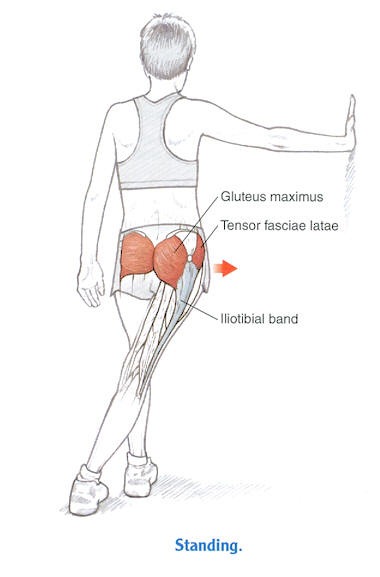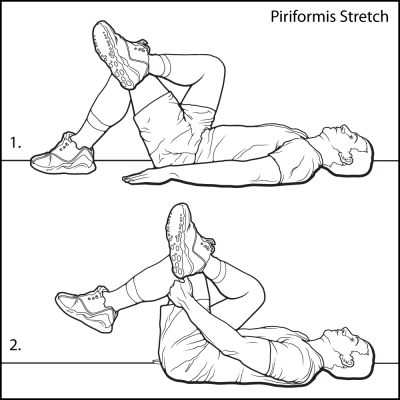Snapping Hip Syndrome
This syndrome gets its name from the snapping sound made in the hips from those who suffer from it. It also gets called Dancer’s hip, since it’s a common issue experienced by dancers and certain athletes. It is usually caused by the tendons of the iliotibial band and gluteus maximus snapping over the greater trochanter of the femur. But unless you’ve been taking some serious anatomy classes, that likely means nothing to you. Basically, things get too tight in your hips and some parts slide over other parts making a snapping sound.
 (The bend and snap move can be a cause of snapping hip syndrome)
(The bend and snap move can be a cause of snapping hip syndrome)
Whose Hips are Snapping?
Snapping hip affects approximately 5% to 10% of the population. The majority of patients experiencing painless snapping. It is slightly more common in women than in men. People typically affected include those who do repetitive extreme hip motions, including ballet dancers, weight lifters, soccer players, and runners. It can be painless sometimes, other times there can be pain involved. Either way it’s a troubling experience. But if you are experiencing a snapping hip, there is hope!
Treatment
Snapping Hip is something we can treat in our offices. One major part of solving your snapping hip woes will be stretching. Here are a couple of stretches you can do on your own.
First, the ITB stretch:
- Stand next to a wall for support
- Cross the leg closest to the wall behind your other leg
- Move your hip toward the wall – you should feel a stretch at the outside of your hip. Hold for 30 seconds.
- Repeat on the other side.
Next, the Piriformis stretch:
- Lie on your back and cross the foot of the affected hip over the opposite knee.
- Clasp your hands behind your thigh.
- Pull your thigh toward you until you feel the stretch in your hip and buttocks. Hold for 30 seconds.
- Repeat on the opposite side.
If you’ve got a hip that won’t stop snapping, come see us in one of our offices. We can stretch you out and set up with a plan of care that will stop the snap.
Written by Travis Rohner, PT


